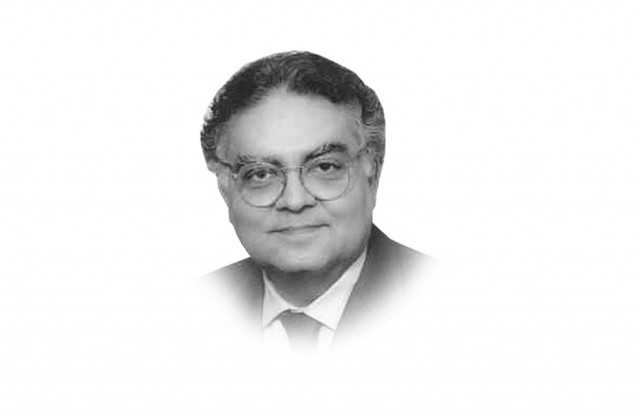Democracy: progress and pitfalls
5 key institutional changes in recent years enable Pakistan to tread more firmly on the path to democracy.

The tenure of the current elected government has been marked by an intense contention for turf amongst the main organs of the state: the executive, parliament, the military and the judiciary. This political turbulence and the associated institutional instability, signifies a reconfiguration of the elite coalition. This dialectic of power has created the possibility of achieving a new balance within the state structure that corresponds in practice to the balance stipulated in the Constitution.
Five key institutional changes have occurred in recent years which could enable Pakistan to tread more firmly on the path to democracy: (1) The citizens’ movement led by the lawyers — unprecedented in its intensity, sacrifice and geographic coverage — served to restore the judiciary. In so doing, the movement helped establish the norm that the people of Pakistan are willing to preserve, protect and defend the Constitution. (2) The heroic initiative by Mohtarama Benazir Bhutto in the face of obvious danger to her life, of launching a campaign against the military dictatorship of General Pervez Musharraf. In sacrificing her life for democracy she joined the pantheon of martyrs whose memory inspires the resolve of the people to defend their freedom. Such great sacrifices permeate into the collective consciousness and folklore of the people, and hence irrigate the organic growth of democracy. (3) The passage of the Eighteenth Amendment rectified the distortions introduced in the Constitution by successive military governments to facilitate the overthrow of elected civilian governments. (4) The emergence of an independent judiciary with a spine whose strength was drawn from the will of the people. The Supreme Court began to hold to account not only the incumbent government for corruption and malfeasance, but through its power of suo motu strove to protect the rights of citizens who had been abducted by various security agencies. It publicly scrutinised a case in which the ISI had allegedly funded opposition political parties, and it castigated elements in the military establishment who had stepped outside the law. Such dispensation of justice without fear or favour has helped to achieve a new balance between various organs of the state in accordance with the Constitution. (5) The perceived threat of destabilisation of the elected government by the military, following the so-called ‘memogate’ affair, was successfully overcome in a historic face-off between the prime minister and the military.
As the people of Pakistan build democracy they face two major threats: (1) An economy that within its existing rent-based structure, extracts the fruits of the labour of people for the profligacy of the elites. Consequently while the people are deprived of the minimum conditions of dignified life, public debt has increased to such an unsustainable level that the country faces bankruptcy. (2) The religious extremists pose a threat not only to the way of life of the people of Pakistan, but to its very existence as a state. The response to them is ambivalent: they have apparently penetrated the security apparatus, and won allies amongst some of the right wing political parties. The way democratic forces address these challenges will shape the future of democracy.
Published in The Express Tribune, May 21st, 2012.














COMMENTS
Comments are moderated and generally will be posted if they are on-topic and not abusive.
For more information, please see our Comments FAQ